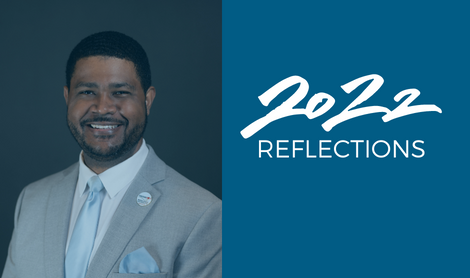NACSA Blog
Press Releases
 |
Los Angeles Unified Charter Schools Director Selected for Board of National OrganizationJosé J. Cole-Gutiérrez, director of charter schools for Los Angeles Unified School District (LAUSD), works each day to bring exceptional public school choices to the children of Los Angeles through high-quality charter … |
 |
National Charter Authorizer Group Endorses Wisconsin Ed ReformsProposed education reforms in Wisconsin would address significant obstacles standing in the way of a more effective charter public school sector, today said the National Association of Charter School Authorizers (NACSA). The … |
 |
Partnership Brings Additional Capacity to Nation’s Largest Authorizers of Charter SchoolsDeveloping a pipeline of exceptional talent is necessary to serve and strengthen the growing field of charter school authorizing. The National Association of Charter School Authorizers (NACSA) is partnering with three of … |
 |
NACSA Applauds Indiana Move to Strengthen Charter Law to Ensure QualityGreg Richmond, president and CEO of the National Association of Charter School Authorizers, today issued the following statement regarding Governor Michael Pence’s signature of revision to Indiana’s charter school law: “Yesterday, Governor … |
 |
Charter School Authorizers Group Issues 2012 Professional Practice IndexThe National Association of Charter School Authorizers (NACSA) today released its 2012 Index of Essential Practices, a set of professional practices to guide quality charter school approval and monitoring. Good charter school … |
 |
Innovation After the PandemicAs students and communities emerge from the ravages of a global pandemic, authorizing faces a key challenge: embracing its fundamental role of providing high-quality educational opportunities, while evolving to meet new demands … |
 |
New School ApplicationWhat’s possible today? Who can start new, high-quality, innovative, and equitable schools? Is it possible for community members, talented educators, or the next generation of leaders to start a new school that … |
 |
Third ThursdaysNACSA provides professional development opportunities, online courses, resources, and publications that are specifically designed to help authorizers and other school leaders grow and network. Third Thursdays, an ongoing virtual learning series, is … |
 |
2022 Reflections with KaregaAgency. Acceleration. Autonomy. You couldn’t miss these words, prominently displayed throughout the school. But these were not just words on walls: I saw how students, teachers, and administrators took those beliefs seriously. … |
 |
2022 Change MakersAcross the country, the dual challenges of an ongoing pandemic and racial inequities continue to impact our schools. But educators, school leaders, and authorizers across the country have been working to meet … |
 |
Authorizer Resource: Measuring School Quality in Multiple WaysEvaluating charter school performance to ensure school accountability is at the heart of authorizing. Measuring school quality is multifaceted work. To do it well, authorizers work with schools to set the right … |
 |
NACSA names Brian Graham as Chief Financial OfficerDr. M. Karega Rausch, president and CEO of the National Association of Charter School Authorizers (NACSA), announced today that Brian Graham joins NACSA as chief financial officer. “I am honored to be … |
 |
State of Charter Authorizing ReportAuthorizing is the most consequential public school governance reform of the past two decades. For the last 20+ years, authorizers have been creating a new landscape, where school autonomy—balanced by fierce accountability … |
 |
NACSA’s CSP Guidance for Management OrganizationsAs federal education programming has shifted over the years to be more focused on high-quality outcomes for students, communities desiring a charter school have increasingly turned to already-proven, successful educational models to … |
 |
Higher Education Institutions (HEIs) AuthorizingQuality authorizing can exist within many contexts and structures. One of those contexts is within higher education institutions (HEIs). We examined how and what HEIs contribute to the charter schools’ landscape. This … |